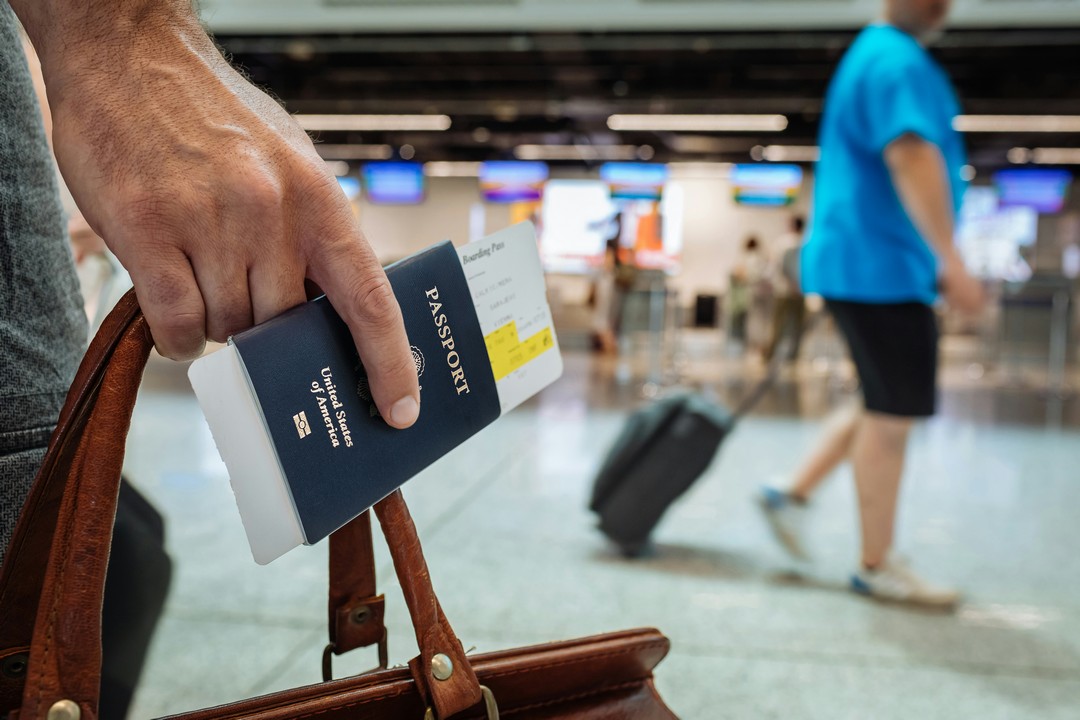
The idea of passport-free travel, where you only scan your face or fingerprint to get through immigration, is one that anyone who has faced the long lines at the airport will welcome.
Instead of being stuck at passport control, you simply walk through a gantry with your face or fingerprint as your identity, doing away with the good, old passport that has become a standard document for travel across borders for decades.
This ideal scenario is already happening in parts, as biometrics and digital IDs become more secure and widespread, though experts caution that much still needs to be overcome before truly passport-free travel becomes a reality.
The latest to bring this reality closer is Changi Airport. Singapore’s famed international airport is expected to let people travel out of the country by using biometrics as a check instead of the traditional passport.
The automated clearance means a traveller does not have to show his passport or boarding pass multiple times at the airport. Biometrics is expected to be the token used to authenticate the traveller at various automated checkpoints.
The procedure, expected in the first half of this year, means that there must be a way for the authorities to capture and store the biometrics data for a traveller so they can be authenticated against the person turning up at a checkpoint.
Currently, this information is stored on a chip in a e-passport that more than 100 countries, including Singapore, have been using for close to two decades.
One way forward, say industry experts, is to capture this personal ID and biometric information on a secure mobile phone app, thus doing away with physical passports, which often get lost and misplaced.
In the same way that digital IDs are stored on phones now, such digital travel credentials can be used to identify a person as he crosses borders, said Kenny Ching, head of sales for citizen ID in Asia-Pacific at HID, which sells access control hardware and software.
There has been several proof-of-concept trials in various countries, with a possible goal of using such travel credentials stored on a mobile device instead of a passport in future, he added.
However, the common e-passport today is still one of the most secure documents, with an encrypted chip that is trusted across countries, he noted.
This means phones or other devices that seek to replace the passport have to be just as secure, for example, with encrypted digital elements that work as e-wallets, he explained.
Already, there have been efforts to use the phone as a digital ID at airports. For example, travellers can board planes in Japan with a digital boarding pass, though many immigration control points still require a passport.
In the United States, a mobile app now allows a small group of travellers – US citizens and Canadians – to pass through immigration faster without filling in forms, but that process still requires a passport for checks.
The fragmented nature of such processes across different places is due to the various security conditions involved in cross-border travel.
While airlines and airport authorities may desire faster checks with less friction, immigration authorities and law enforcement are usually wary of implementing new processes too quickly. Plus, different countries have different appetites for risk.
Singapore’s passport-free effort, for example, only extends to those leaving the country. Travellers still have to present their passports when entering the Republic, because of the security checks needed.
“Digital identity and virtual passports can bring unparallelled convenience and ease of use for travellers, although certain challenges will need to be addressed,” said Quah Sae Soon, head of regional marketing for Asia-Pacific at NEC, which helped deploy Singapore’s e-passport system.
“While it may be seamless for travellers to physically depart a country, there could be differing standards at the country of destination,” he noted.
To be sure, Singapore isn’t even the first to contemplate having digital travel credentials. Australia did so back in 2015, with the idea of a cloud passport. It has since carried out trials on contactless traveller technology, hoping to make passport-free travel a reality.
The European Union, too, is working towards an EU Digital Identity Wallet (EUDI) that has been tested in four large-scale projects in April 2023.
The digital wallet can be used to store a passport, a visa and other travel documents, allowing for quick access at airports, as part of the EU’s 2030 digital transformation targets.
While the pandemic from 2020 threw a spanner in the works for many such contactless travel trials, the return of regular cross-border trips afterwards has made it possible to look forward to a more seamless experience in this so-called “new normal”.
After all, the pandemic did force many airports, airlines and travellers to go digital with self-service, low-contact or no-contact check-in and immigration clearance, so there is some readiness for digital travel credentials in the future.
Progressively, more travelers are embracing digitisation, with 45 per cent of air travel passengers saying they are ready to drop paper passports for digital identities, according to a 2023 report by Oliver Wyman, a consultancy.
That said, the different processes in place now mean that a lot more still needs to be done to develop a common, trusted standard for such digital travel credentials.
For example, while Singaporeans could present their national digital ID – the SingPass – as a replacement for a physical ID card to vote and enter government buildings, this isn’t a format that is accepted overseas.
There needs to be standardisation and interoperability between countries to ensure that a seamless exchange of information can happen, said NEC’s Quah.
“This requires a collaborative effort between governments, technology players and international organisations to establish robust standards and systems,” he added.
HID’s Ching said the Type 3 Digital Travel Credentials endorsed by the International Civil Aviation Organization (ICAO) that equate to having true passport-free travel need to have more support from countries, starting with bilateral trials in the coming years.
The good news, he noted, is that smartphone penetration has been a strong driver for the adoption of more digital IDs. On the flip side, a common standard that is accepted across the world could take at least a decade, he estimated.






